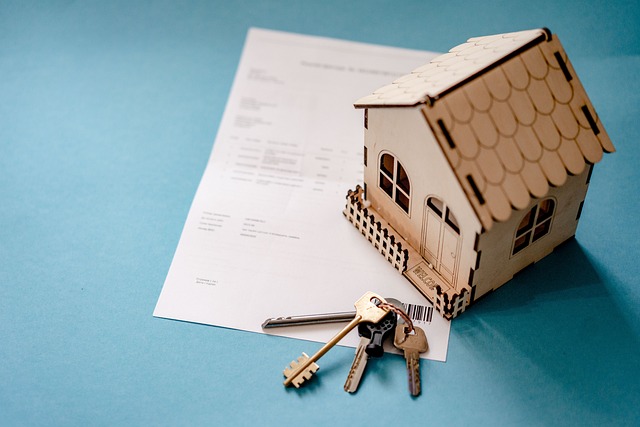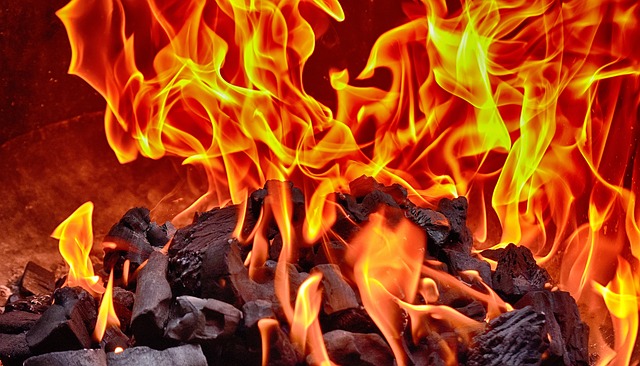Selling a fire-damaged property in California requires strict legal disclosures to protect buyers and sellers from future disputes. Both parties must disclose historical fires, their extent, and related structural or health hazards, as mandated by state laws. Buyers should conduct thorough research and request comprehensive inspection reports while reviewing all seller disclosures to make informed decisions. Non-compliance with disclosure rules can result in penalties, liabilities, and legal issues for sellers.
- Understanding Property Disclosure Requirements in California
- What Constitutes Fire Damage for Legal Purposes
- Seller's Obligation to Disclose Known Issues
- Buyers' Rights and Responsibilities During the Transaction
- Legal Implications of Non-Compliance: Cases and Penalties
Understanding Property Disclosure Requirements in California

In California, selling a fire-damaged property comes with specific legal obligations for disclosure. The state has stringent regulations to ensure transparency between sellers and buyers, especially when it comes to potential hazards or damage. These requirements are designed to protect both parties and prevent future legal disputes.
When a property has been affected by a fire, the seller must disclose any known issues related to the structural integrity, systems (like plumbing or electrical), and potential health hazards caused by smoke or water damage. This includes providing written notice of the fire and its impact, along with relevant documents such as inspection reports, repair estimates, or insurance claims made regarding the incident. California’s property disclosure laws are comprehensive, aiming to give buyers informed consent and ensure they understand any risks associated with purchasing a fire-damaged home.
What Constitutes Fire Damage for Legal Purposes

When it comes to selling fire-damaged property in California, understanding what constitutes legal fire damage is essential for both buyers and sellers. Fire damage goes beyond visible charred walls and melted fixtures; it encompasses a wide range of impacts that can affect a property’s value and habitability. Legally, any structural element or component affected by a fire, as well as any associated systems like electrical wiring, plumbing, and heating mechanisms, are considered damaged if they require repair, replacement, or complete restoration.
California laws governing the sale of real estate mandate full disclosure of known fire damage to potential buyers. This means that sellers must disclose not only visible signs of fire but also any historical fires that have occurred on the property, along with the extent and nature of the damage. Buyers are then equipped with the necessary information to make informed decisions about purchasing a fire-damaged property in California.
Seller's Obligation to Disclose Known Issues

When a seller in California puts their property on the market, they have a legal obligation to disclose any known issues or damages that could impact a buyer’s decision. This includes, but is not limited to, structural problems, fire damage, and any other safety hazards. Sellers must be transparent about these matters, as withholding information can lead to serious legal consequences.
Fire-damaged properties require special attention due to potential health risks and hidden costs associated with repairs. In California, sellers are mandated to reveal if their home has ever been affected by a fire, along with details about the extent of the damage. This proactive disclosure allows buyers to make informed choices and plan for any necessary renovations or remediation steps before finalizing the purchase.
Buyers' Rights and Responsibilities During the Transaction

When considering the purchase of a selling fire damaged property in California, buyers have specific rights and responsibilities they should be aware of. In this state, real estate transactions are governed by extensive laws designed to protect both parties. Buyers have the right to receive accurate and detailed information about any potential issues or damages that may affect their investment. This includes, but is not limited to, disclosure of prior fire damage, as it can significantly impact the property’s structural integrity, safety, and value.
It’s crucial for buyers to conduct thorough research and due diligence before finalizing the purchase. They should insist on a comprehensive property inspection report, which will highlight any existing or past fire-related issues. Additionally, buyers should review all disclosure documents provided by the seller, as California laws mandate full transparency during real estate transactions. By exercising these rights, buyers can make informed decisions, protect their investments, and ensure they are purchasing a safe and sound home.
Legal Implications of Non-Compliance: Cases and Penalties

When selling a fire-damaged property in California, failure to disclose material information can lead to significant legal consequences for sellers. Non-compliance with disclosure requirements may result in various penalties and liabilities. If it’s discovered that a seller knowingly withheld or misrepresented details about previous fires or damage on the property, it could constitute fraud. Such actions can render the sale voidable, exposing the seller to potential lawsuits from buyers who might suffer financial losses due to unforeseen repairs or decreased property value.
Moreover, California law often imposes strict penalties for non-disclosure. Fines and legal fees can be substantial, and in some cases, sellers may face criminal charges if their non-compliance causes harm or danger to potential occupants. It’s crucial to understand the specific disclosure rules set by the state to avoid these legal implications, especially when dealing with properties that have a history of fire damage.
When selling fire-damaged property in California, understanding and adhering to strict disclosure requirements is paramount. This comprehensive guide has outlined key aspects, from defining fire damage to buyers’ rights, emphasizing the seller’s duty to disclose known issues. Non-compliance can lead to legal implications, including cases and penalties, as highlighted throughout this article. Therefore, for a seamless and legally sound transaction, selling fire-damaged property in California demands meticulous disclosure to protect both parties involved.






